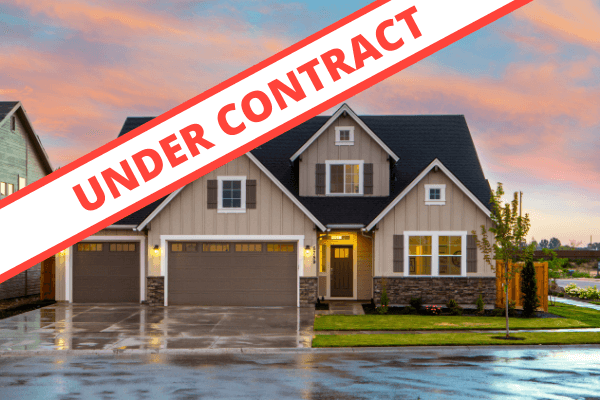The time a home remains under contract varies based on financing, inspections, and negotiations. Understanding how long can a house be under contract helps buyers and sellers prepare for potential delays and a smooth closing process.

What Does “Under Contract” Mean in Real Estate?
In real estate, a property is considered under contract when the buyer and seller have signed a purchase agreement. At this stage, both parties are legally bound to fulfill the terms outlined in the contract. However, the sale is not final until the transaction closes.
The “under contract” period is often seen as a waiting game, but it’s an essential time where contingencies, inspections, and financing arrangements are finalized.
Typical Timeline for a House to Be Under Contract
The time a house remains under contract varies depending on several factors, but the average duration is between 30 and 60 days. Let’s break this down further:
Standard 30-Day Timeline
- Contract Acceptance (Day 0): Both parties agree on terms and sign the contract.
- Earnest Money Deposit (Day 1-3): The buyer submits an earnest money deposit as a show of good faith.
- Inspection Period (Day 3-10): Home inspections occur, and the buyer can negotiate repairs or credits.
- Appraisal (Day 10-20): The lender arranges for a home appraisal to confirm its value aligns with the loan amount.
- Loan Approval (Day 20-25): The buyer’s lender finalizes loan approval.
- Closing (Day 25-30): The deal is completed, and ownership is transferred.
Extended 60-Day Timeline
Some contracts may require additional time due to:
- Complex financing requirements
- Appraisal delays
- Negotiation of repairs
Factors That Influence How Long a House Can Be Under Contract

1. Type of Sale
- Traditional Sales: Typically close within 30-45 days.
- Short Sales: Can take months to close due to lender approval processes.
- Foreclosures: Often require more time because of bureaucratic delays.
2. Contingencies in the Contract
- Inspection Contingency: Allows buyers to withdraw or renegotiate if inspections reveal issues.
- Appraisal Contingency: Protects the buyer if the property doesn’t appraise for the agreed price.
- Financing Contingency: Gives the buyer time to secure a loan.
3. The Buyer’s Financing
- Buyers using conventional loans may close faster than those relying on FHA, VA, or USDA loans, which require additional scrutiny.
4. Market Conditions
- Buyer’s Market: Homes may stay under contract longer due to slower competition.
- Seller’s Market: Contracts may move quicker as motivated buyers streamline processes.
What Happens If a House Stays Under Contract Too Long?
There are several reasons a property might remain under contract longer than expected. Here’s what might happen:
Delays in Closing
- Title Issues: Problems like unresolved liens or unclear ownership can delay closing.
- Inspection Problems: If significant repairs are required, this can extend the timeline.
- Financing Hiccups: Changes in the buyer’s financial status can slow the process.
Risk of Contract Cancellation
If contingencies are not met or resolved, either party may have the right to cancel the agreement. For instance:
- The buyer may withdraw if inspection findings are unsatisfactory.
- The seller may terminate if the buyer fails to secure financing within the agreed period.
Tips for Streamlining the “Under Contract” Period
1. Prepare for the Inspection Process
Ensure the home is in good condition before listing it for sale. Addressing common issues upfront can reduce the likelihood of delays.
2. Work With Experienced Professionals
A knowledgeable real estate agent and attorney can help identify and resolve potential issues quickly.
3. Secure Financing Early
Buyers should obtain pre-approval from their lender to prevent last-minute surprises.
4. Maintain Clear Communication
Both parties should stay in constant communication to ensure smooth coordination of all required tasks.
Frequently Asked Questions (FAQs)
Can the Under Contract Period Be Shortened?
Yes, under certain conditions:
Cash buyers can often close within two weeks.
Pre-inspections before the contract phase can speed up the process.
What Happens If the Buyer Backs Out?
If the buyer withdraws without valid reasons, they may forfeit their earnest money deposit. However, valid reasons such as failed contingencies usually allow for a penalty-free exit.
Can the Under Contract Period Be Extended?
Yes, extensions are possible if both parties agree. Common reasons for extensions include additional time for repairs, financing delays, or title clearance.
Conclusion
The time a house stays under contract depends on various factors, including contingencies, financing, and market conditions. While most transactions conclude within 30-60 days, unexpected delays can extend this period. Understanding the steps involved and working proactively with professionals can help ensure a smoother process.

